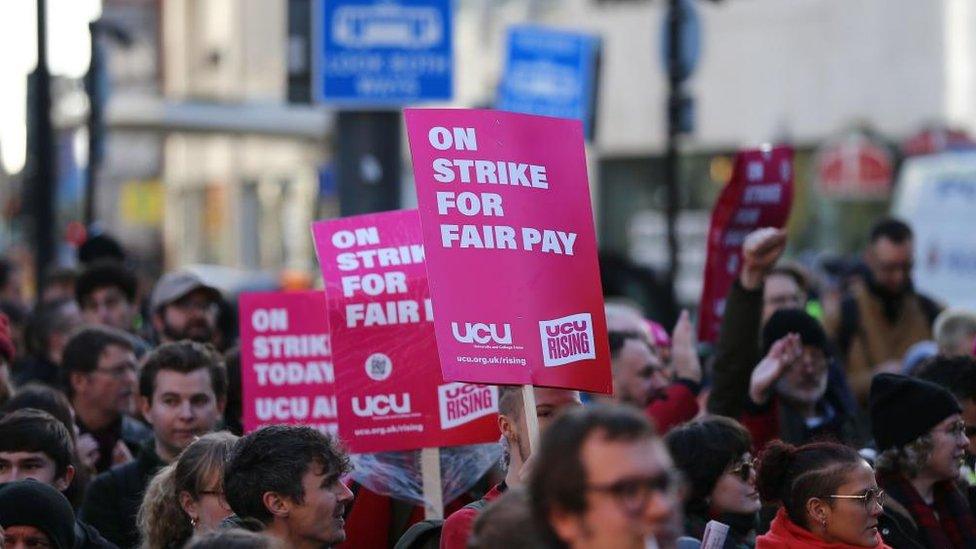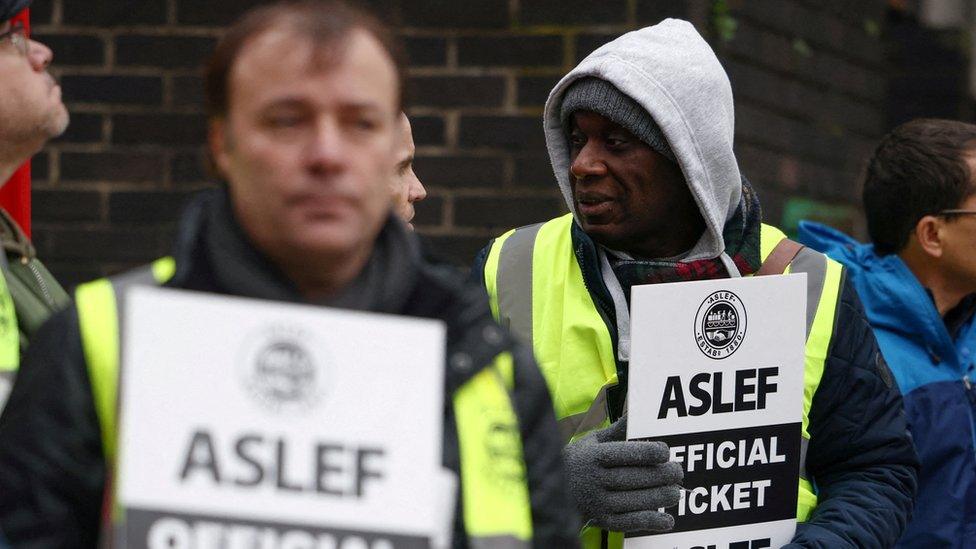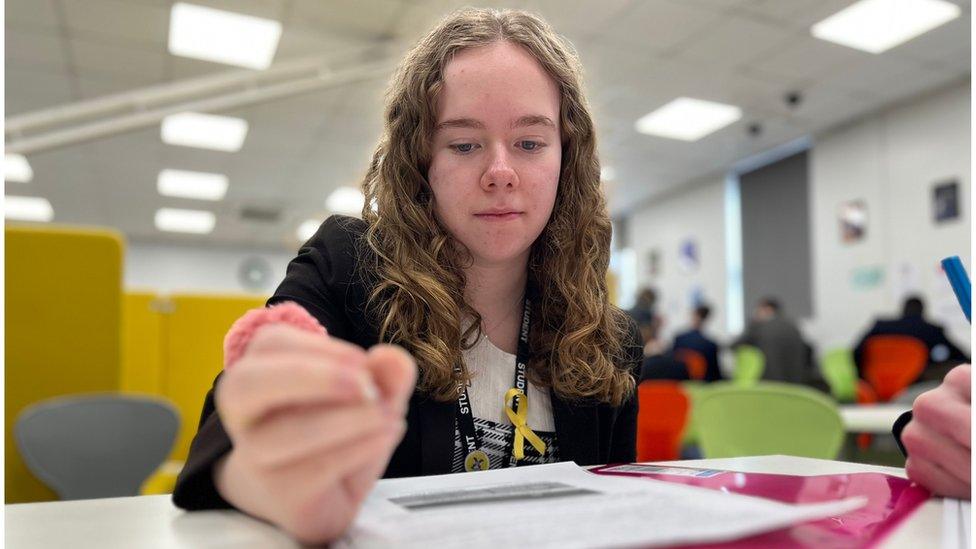Strikes on Wednesday 1 February will disrupt daily life - No 10
- Published

University workers are among those going on strike on 1 February
Mass strike action on Wednesday will cause "significant disruption", Downing Street has said.
Teachers, university workers, civil servants, train and bus drivers are all due to walkout during the day.
Around 500,000 workers are due to take part, making it the biggest strike in more than a decade, according to the Trades Union Congress (TUC).
Talks between teaching unions and the Department for Education (DfE) ended without progress on Monday.
The National Education Union (NEU) said Education Secretary Gillian Keegan had "squandered an opportunity" to avoid Wednesday's strike action.
It expects about 23,000 schools to be affected in the first of its seven planned walkouts by teacher members in England and Wales.
The DfE has offered a 5% pay rise to most teachers for the current school year, but the NEU wants a fully funded above-inflation increase for teachers.
Some schools have announced they will close but others are still deciding - meaning many parents are waiting to hear whether they will need to make childcare arrangements.
But Schools Minister Nick Gibb said the government expected the "majority" of schools in England to be open "in some capacity".
Teachers join a wave of public sector workers striking over pay and conditions.
Members of seven unions will be on strike on 1 February.
Lecturers, librarians, and other university workers belonging to the UCU union will join the walkouts.
So will train drivers belonging to Aslef, affecting services in England, Scotland and Wales.
Passengers have been warned there will be huge disruption to services across 14 rail networks, with some operators unable to run any trains.
Customers are encouraged to check their route before travelling.
Teachers belonging to the Educational Institute of Scotland will strike on Wednesday in the Clackmannanshire and Aberdeen city areas.

Rail workers from Aslef union will be among those striking on 1 February
About 100,000 civil servants in 124 government departments are among those taking part in a dispute over pay and conditions, including workers at the Department for Work and Pensions (DWP) and the Driver and Vehicle Licensing Agency.
Mark Mclean, 42, a civil servant at the DWP in Newcastle, is going on strike and said losing a day's wage was "very hard" but described the decision to walk out as "massive".
"Everything's going up and the developed country that we are, I think we shouldn't have to cut many corners just to put the gas and electric on," he said.
"I'm a single parent, and my daughter lives with me full-time. She's got a life she's accustomed to and like any child you don't want them to suffer when it comes to getting better wages.
"So it is hard to cut corners like that but if needs must, you have to."
Some bus drivers employed by Abellio in London are also taking action, with the Unite union calling for a pay rise for members to reflect the cost of living.
The action comes as the TUC says the average public sector worker is more than £200 a month worse off compared with a decade ago.
The union will hand in a petition to Downing Street on Wednesday in protest at the government's proposed "anti-strike" legislation.
The new law would set minimum service levels that striking industries would have to meet before taking action.
The prime minister's official spokesman said: "We know that there will be significant disruption, given the scale of the strike action that is taking place tomorrow, and that will be very difficult for the public trying to go about their daily lives.
"We are upfront that this will disrupt people's lives and that's why we think negotiations rather than picket lines are the right approach."
The spokesman also said the announcement of an ambulance workers' strike on 10 February was "deeply concerning".
"We are putting in place significant mitigations, which have previously helped reduce some of the impact of these strikes," he said, urging unions to reconsider.


Have you been affected by issues covered in this story? Get in touch by emailing haveyoursay@bbc.co.uk, external.
Please include a contact number if you are willing to speak to a BBC journalist. You can also get in touch in the following ways:
WhatsApp: +44 7756 165803
Tweet: @BBC_HaveYourSay, external
Please read our terms & conditions and privacy policy
If you are reading this page and can't see the form you will need to visit the mobile version of the BBC website to submit your question or comment or you can email us at HaveYourSay@bbc.co.uk, external. Please include your name, age and location with any submission.
Related topics
- Published29 January 2023
- Published31 January 2023

- Published30 January 2023

- Published15 April

- Published1 August 2023
